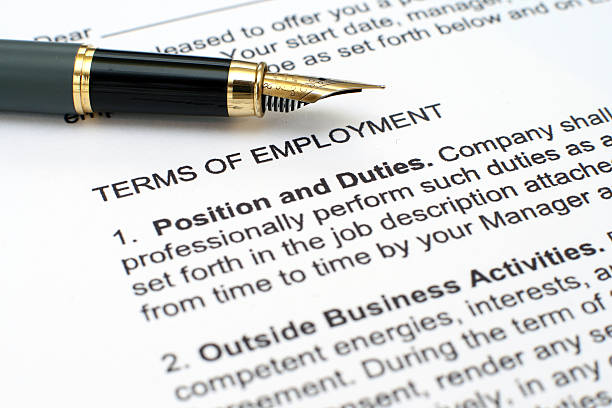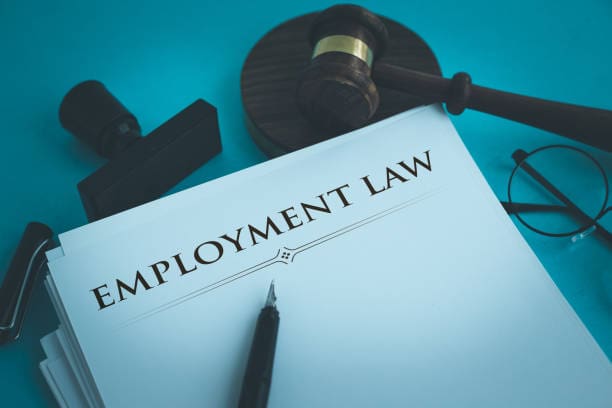Unlawful discrimination in the workplace occurs when an employee receives unfair treatment based on their race, gender identity, age, religion or religious beliefs, national or ethnic origin, disability, sexual orientation, or any other personal characteristics.
It is important to know that if employers treat someone differently, it is not necessarily unlawful discrimination. It is “discrimination” only if their behaviour is due to one of the above-mentioned characteristics.
These are called “protected characteristics” or “protected attributes.” Discrimination can take many forms. Some discriminatory practices include:
- Unequal pay: When employees receive less pay because of their protected characteristics compared to others who are doing the same job
- Hiring and promotion bias: When employers do not hire or promote employees based on their qualifications and job performance, but instead based on their protected characteristics.
- Harassment: When employees are subjected to offensive or intimidating behaviour, including verbal or physical abuse, or sexual harassment because of their protected characteristics.
- Retaliation: When others punish or treat employees unfairly for speaking out against discrimination or harassment.
- Exclusion: When others exclude some employees from social activities and events in the workplace because of their age, gender, race or religion etc.
Discrimination in the workplace is illegal and can have serious consequences for both employees and employers. It can lead to a hostile work environment, decreased morale, and decreased productivity.
Employers can take steps to prevent discrimination by implementing policies that promote equality and diversity, providing training to employees and managers, and responding quickly and appropriately to any reports of discrimination.
Furthermore, employees who face discrimination in the workplace have access to legal avenues that can help them address the issue.
Australian Legalisation
In Australia, the primary piece of legislation that deals with workplace discrimination is the Fair Work Act 2009 (see here).
The Fair Work Act 2009 prohibits discrimination in the workplace based on a person’s race, colour, sex, sexual orientation, age, physical or mental disability, marital status, family or carer’s responsibilities, pregnancy, religion, political opinion, national extraction or social origin.
The Australian Human Rights Commission Act 1986 (see here) also prohibits discrimination in employment on the grounds of race, sex, age, and disability.
Additionally, there are state and territory anti-discrimination laws and legislation, such as the New South Wales Anti-Discrimination Act 1977 (see here).
Employers have a responsibility to ensure that their workplaces are free from discrimination and harassment. Moreover, they may be liable if they fail to take reasonable steps to prevent such behaviour.

Steps to Take to Address Discrimination in the Workplace
There are some steps to take if you are facing discrimination in the workplace. If you believe that you are being discriminated against in the workplace, there are several steps that you can take to address the issue:
- Raise the issue with your employer or HR department: You may be able to resolve the issue informally by discussing it with your employer or HR department. Be specific about the behaviour that you are experiencing and explain how it is impacting you. Your employer may have policies in place to address discrimination and may be able to investigate the matter.
- Keep a record of incidents: It is important to keep a record of any incidents of discrimination, including the date, time, and details of what happened. This can help to support your case if you decide to take further action.
- Make a formal complaint: If informal discussions does not resolve the issue, you may need to make a formal complaint to your employer or HR department. You may need to follow a specific procedure, such as filling out a complaint form, and you should be provided with information on how the complaint will be investigated.
- Contact relevant authorities: You may also wish to contact relevant authorities, such as the Australian Human Rights Commission or your relevant state or territory anti-discrimination agency. They may be able to assist you with your complaint and provide you with information on your rights.
Legal Steps to Take Against Discrimination in the Workplace
It is important to remember that discrimination in the workplace is illegal and you have a right to take action if you believe that you are facing discrimination. If internal processes do not help in resolving the issue, you may wish to seek legal advice.
A lawyer can advise you on your rights and options, and can help you to prepare a case if you decide to take legal action.
Apart from the steps we have outlined above, you can also take certain legal steps if the internal processes do not yield desired results. To protect your rights and to seek justice, you can have a look at these common legal actions:
- Lodge a complaint with the Australian Human Rights Commission: The Australian Human Rights Commission is a federal agency that investigates complaints of discrimination under many federal anti-discrimination laws. This includes the Racial Discrimination Act 1975, the Sex Discrimination Act 1984, the Age Discrimination Act 2004, and the Disability Discrimination Act 1992. You can lodge a complaint with the Commission by visiting their website and filling out an online form.
- File a claim with the Fair Work Commission: If you believe that you have been subjected to discrimination in the workplace and that your employment has been adversely affected, you can file a claim with the Fair Work Commission (FWC). The Commission is responsible for resolving workplace disputes, including those related to discrimination.
- Stay aware of your rights: Familiarise yourself with your rights under federal and state anti-discrimination laws. Understanding your rights will help you determine whether or not you have a valid claim of discrimination.

Speak to Our Employment Lawyers
Remember that discrimination in the workplace is illegal in Australia, and you have the right to take legal action to protect yourself. If you experience discrimination, it is important to act quickly and seek legal advice to ensure that you protect your rights.
You can consult with an employment lawyer who has experience and is an expert on discrimination law to discuss your legal options. They can advise you on whether you have a valid claim and can help you prepare your case.
At JB Solicitors, we have a team of solicitors who can help you resolve your disputes either internally through dispute resolution processes, or externally by representing you in the local or federal court. Moreover, if the situation is getting out of hand, it is best to speak to lawyers and obtain advice on this matter.
Contact our experienced team of solicitors today to obtain independent legal advice.
